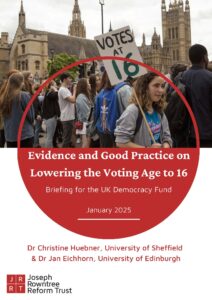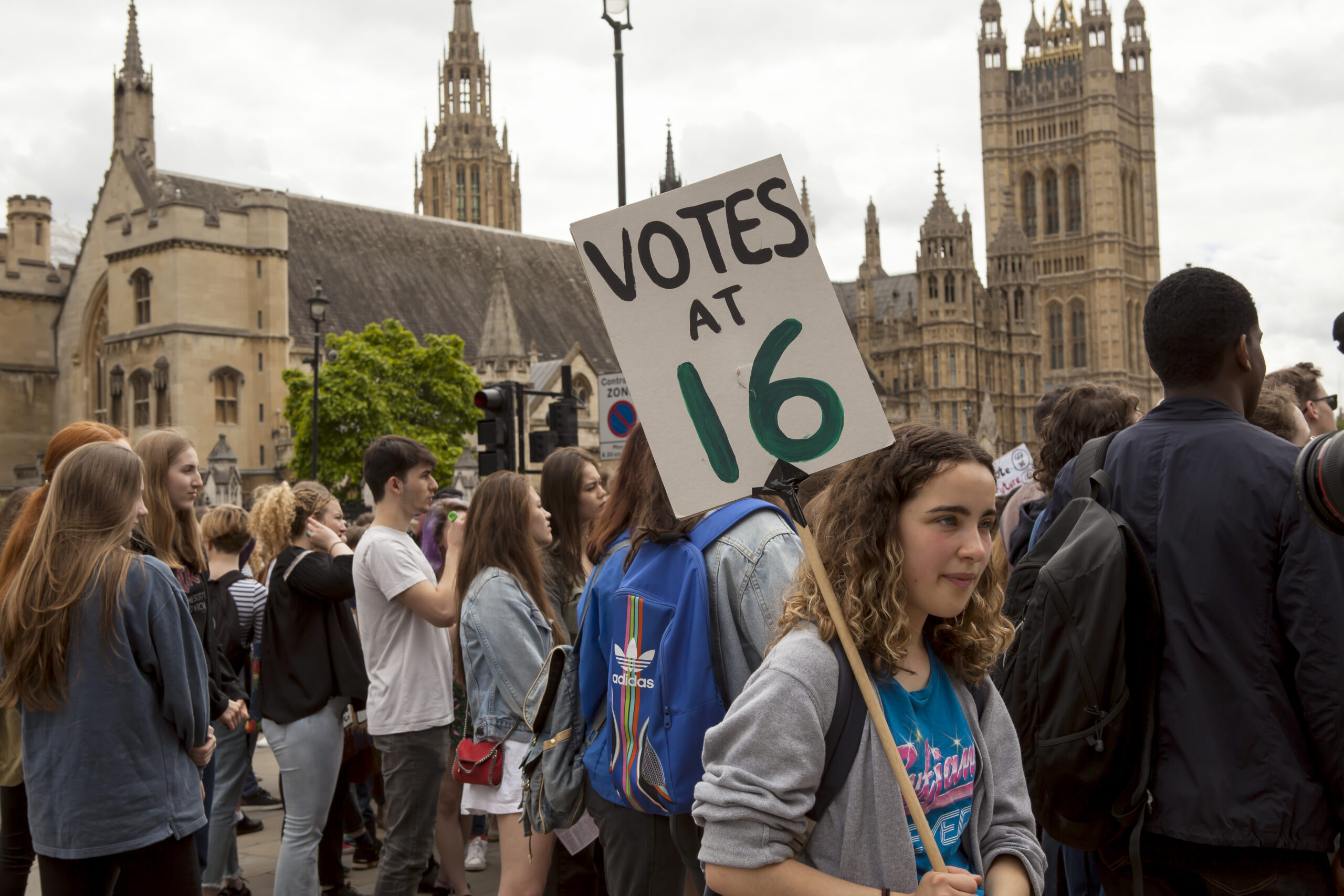In January 2025, the UK Democracy Fund published Evidence and Good Practice on Lowering the Voting Age to 16.
Ellen Berry, Head of the UK Democracy Fund, explains more about the research and recommendations in this blog post.
Written by Dr Christine Huebner, University of Sheffield & Dr Jan Eichhorn, University of Edinburgh, the briefing summarises key evidence on the outcomes of lowering the voting age to 16 from countries that have extended the franchise to younger people, and provides an overview of emerging evidence on what is important in the implementation and delivery of voting age reform in the UK.
International evidence consistently demonstrates that extending the franchise to young people from the age of 16 can increase their overall participation in democracy, and that there are no notable negative outcomes for young people or society more broadly. Research shows that young people are able to select who they vote for in the same way as other voters, with the same standard of decision making as older adults.
Votes at 16 has the potential, however, to challenge inequalities in participation and improve attitudes to democracy.
- Votes at 16 can counter low voting amongst other demographics, having positive impacts on democratic equality and addressing low turnout.
- There is some evidence that it can impact young people’s attitudes towards democracy and its responsiveness to their needs.
- Evidence from Scotland shows that once the voting age was lowered, the policy became significantly more popular amongst older generations.
For franchise extension to reach its full potential, the below recommendations will be an important part of implementation:
- Young people in Scotland and Wales currently have the right to vote in some elections. However, comprehensive franchise extension across all elections is more impactful.
- Full inclusion for young people as democratic actors is an important part of implementation. Political parties can do more to engage young people, and they should be included in political debates and media coverage.
- To take advantage of their new voting rights, young people must be on the electoral register. Currently 16- and 17-year-olds are registered at only 16%. Introducing automatic voter registration, adding young people to the register when they receive their National Insurance number at 16, would address this.
- Considering the types of ID 16- and 17-year-olds tend to have will also be important as the Government reviews the Voter ID policy.
- Access to good quality democratic education for young people is important. The Department of Education’s curriculum review provides an opportunity to address this, but it is not necessary for Votes at 16 to be delayed until the education issue is addressed.
 Download the full briefing report here
Download the full briefing report here
Header image: Jane Campbell, Shutterstock

